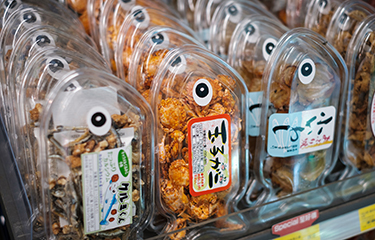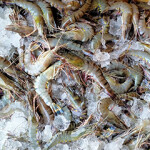Leading Chinese seafood snack maker sees damaged consumer sentiment

The U.S., grappling with China’s trade surplus, looks to have dented the prospects of imported U.S. seafood in China by depressing local consumer sentiment, according to a top official in a leading value-added seafood company.
Dry, packaged seafood snacks such as strips of squid are top sellers in Chinese snack stores, but discretionary spending has been hammered by the Sino-U.S. trade war, according to Liu Rongru, joint-chairman and chief executive officer at Xiamen-based Shenghai Food Holdings Company Limited. Now, the coronavirus has only added to the declines in those categories.
Liu was commenting in a company annual report showing profits at the firm at CNY 46 million (USD 6.4 million, EUR 5.98 million) in 2019 were well down on the CNY 104 (USD 14.5 million, EUR 13.52 million) recorded in 2018.
“Consumer sentiment was badly impacted by the Sino-U.S. trade war … seafood is a discretionary purchase,” noted Rongru.
Revenues in 2019 totaled CNY 472 million (USD 66 million, EUR 61.3 million), bringing to an end a strong run of growth. The company grew its revenues from CNY 205 million (USD 28.7 million, EUR 26.6 million) in 2014 to CNY 367 million ( USD 51.3 million, EUR 47.7 million) in 2015, and grew further still to CNY 468 million (USD 65.5 million, EUR 60.84 million) in 2016. Gross profit margins in those years were very respectable at 23.4 percent, 25.6 percent and 25.3 percent, a testament to the profit potential in value added seafood products on the Chinese marketplace.
The company owns Wo Feng Hai Xian, which produces the well-known ‘Wo Feng’ (it also uses the ‘Wofan’ name in Roman letters) brand of dried seafood snacks which include premium gift packaged (dried) cuttlefish, oysters, scallops, and shrimp. The parent company of China’s leading producer of dry seafood snacks pulled off a Hong Kong stock market listing in Hong Kong in 2017 to expand its distribution.
The company, which claims to be China’s leading player in dried seafood products, spent funds to build a logistics center and a quality control center. Cash was also spent on increasing the company’s distribution through supermarkets and convenience stores across China.
Shenghai sells over 100 dried seafood, 30 algae and fungi, and 60 seafood snack products in China; with the bulk of sales coming from supermarkets. Yet no customer contributed 10 percent or more of the group’s revenue in 2019.
Photo courtesy of hanohiki/Shutterstock






Share